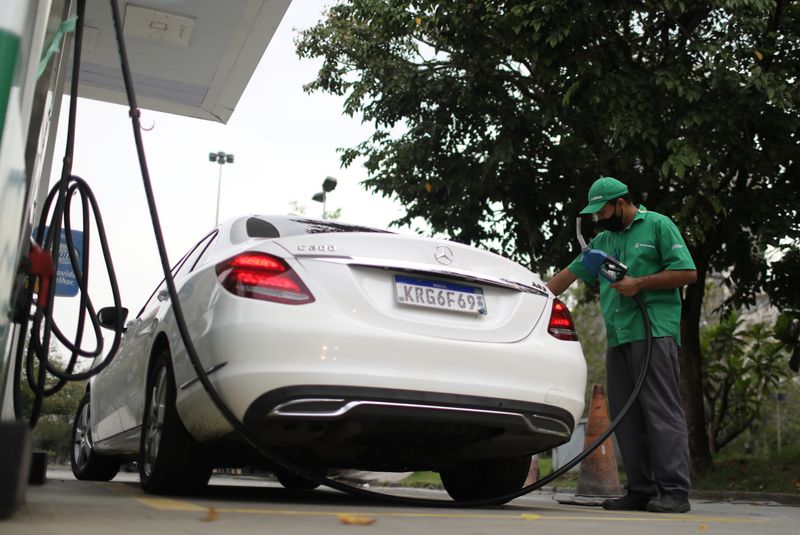Brazil’s inflation extends downtrend in mid-September on lower fuel prices
2022.09.27 11:48
[ad_1]

Brazil’s consumer prices extended their trend down in the month to mid-September, government statistics agency IBGE said on Tuesday, as fuel costs continued to drop on the back of lower taxes and price cuts by state-run oil firm Petrobras.
The local IPCA-15 index fell 0.37% in the month to mid-September, a deeper drop than the 0.2% expected by analysts polled by Reuters, though slowing down from the 0.73% fall seen in the previous month.
Inflation in the 12 months to mid-September hit 7.96%, well below the 8.14% forecast by economists, likely backing the central bank’s recent decision of pausing its aggressive rate hiking cycle.
As well as in August, when Latin America’s largest economy posted the lowest mid-month inflation rate in about three decades, this month’s drop was driven by the transportation sector, in which costs fell 2.35%, IBGE said.
Adding to energy state tax cuts announced earlier this year, oil giant Petroleo Brasileiro SA reduced refinery gate gasoline prices twice since mid-August, leading to lower prices at the pump.
The inflation drop in September, however, was not widespread as prices fell in only three of the nine groups of products and services surveyed, IBGE said – communication, food and beverages, and transportation.
Clothing, healthcare and housing prices rose in the period, it noted.
Andres Abadia, chief Latin America economist at Pantheon Macroeconomics, said the fresh figures brought further evidence that inflation was decelerating rapidly thanks mainly to the effect of tax and the lagged impact from monetary tightening.
“Core pressures remain relatively elevated, due mostly to resilient domestic demand, but we expect economic growth to ease over the coming months.”
The latest inflation data comes as Brazil’s central bank last week chose to keep interest rates unchanged at 13.75%, pausing an aggressive tightening after 12 consecutive increases aimed at curbing high inflation.
Most members of the monetary policy committee concluded inflation expectations supported the end of the tightening cycle, though a further “residual” rate hike was “widely debated,” the meeting minutes showed on Tuesday.
William Jackson, chief emerging markets economist at Capital Economics, said the inflation figures confirmed that the monetary tightening cycle was over.
“(But) the fact that inflation remains very strong (particularly outside the food and energy categories) supports our view that the central bank will wait until the middle of next year before turning to interest rate cuts,” he added.
[ad_2]
Source link








